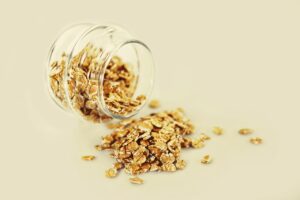The Best Diet for Heart Health and Cholesterol
Heart health is crucial for overall well-being, and cholesterol levels play a significant role in maintaining it. With cardiovascular diseases being a leading cause of death worldwide, adopting a heart-healthy diet is more important than ever. In this guide, we’ll explore dietary strategies to improve heart health, manage cholesterol levels, and boost your quality of life.
Why Heart Health and Cholesterol Matter
Understanding Cholesterol
Cholesterol, a waxy substance found in your blood, is vital for building cells and producing hormones. However, high levels of low-density lipoprotein (LDL), commonly known as “bad cholesterol,” can lead to plaque buildup in arteries, increasing the risk of heart disease and stroke.
The Role of a Healthy Diet
Diet significantly impacts cholesterol levels and overall cardiovascular health. By making informed food choices, you can lower bad cholesterol, increase good cholesterol (HDL), and maintain a healthy heart.
Key Components of a Heart-Healthy Diet
-
Increase Fiber Intake
Soluble fiber helps lower LDL cholesterol by binding to it in the digestive system and removing it from the body.
- Sources: Oats, beans, lentils, apples, citrus fruits, and barley.

-
Incorporate Healthy Fats
Replace saturated and trans fats with unsaturated fats to improve cholesterol levels.
- Sources: Avocados, olive oil, nuts, seeds, and fatty fish like salmon and mackerel.
-
Focus on Whole Grains
Whole grains contain essential nutrients and fiber that support heart health.
- Examples: Brown rice, quinoa, whole wheat bread, and oats.
-
Emphasize Plant-Based Foods
Plant-based diets are rich in antioxidants and phytochemicals that reduce inflammation and support heart health.
- Recommended Foods: Leafy greens, berries, tofu, legumes, and nuts.
-
Limit Sodium and Processed Foods
Excess sodium can lead to high blood pressure, a major risk factor for heart disease.
- Tips: Opt for fresh ingredients, use herbs for flavoring, and avoid packaged snacks.
-
Stay Hydrated
Proper hydration supports overall health, including blood circulation and heart function.
- Best Choices: Water, herbal teas, and low-sodium broths.
Foods to Avoid for Better Cholesterol Management
- Fried Foods: High in unhealthy fats.
- Red Meat and Processed Meats: Rich in saturated fats.
- Sugary Beverages: Lead to weight gain and metabolic issues.
- Baked Goods: Often contain trans fats and added sugars.
Practical Tips for Heart-Healthy Eating
- Meal Prep: Plan meals ahead to avoid unhealthy choices.
- Read Labels: Check for hidden sodium, sugar, and unhealthy fats.
- Portion Control: Avoid overeating, even healthy foods.
- Mindful Eating: Focus on your meal and eat slowly.
Sample 7-Day Heart-Healthy Meal Plan
Day 1
- Breakfast: Oatmeal with fresh berries and chia seeds.
- Lunch: Quinoa salad with avocado, spinach, and chickpeas.
- Dinner: Grilled salmon with steamed broccoli and sweet potatoes.
Day 2
- Breakfast: Greek yogurt with walnuts and a drizzle of honey.
- Lunch: Lentil soup with a slice of whole-grain bread.
- Dinner: Stir-fried tofu with mixed vegetables and brown rice.
(Continue this pattern for Days 3–7…)
FAQs
1. What is the best diet for lowering cholesterol?
A diet rich in fiber, healthy fats, and plant-based foods is best for lowering cholesterol. Examples include the Mediterranean diet and the DASH diet.
2. How long does it take to see results from a heart-healthy diet?
Improvements in cholesterol levels can occur within 6–8 weeks of consistent dietary changes.
3. Can supplements help with heart health?
Yes, omega-3 fatty acids, plant sterols, and soluble fiber supplements can support heart health. Always consult your doctor before starting supplements.
4. Are all fats bad for cholesterol?
No, unsaturated fats like those in avocados, nuts, and olive oil can improve cholesterol levels.
5. What lifestyle changes complement a heart-healthy diet?
Regular exercise, stress management, and avoiding smoking enhance heart health alongside a proper diet.
Conclusion
A heart-healthy diet isn’t just about avoiding unhealthy foods; it’s about embracing nutrient-rich, wholesome options that nourish your body and protect your heart. By incorporating the tips and strategies outlined in this guide, you can take proactive steps toward a healthier, more vibrant life. Remember, consistency is key. Start today to build a foundation for lasting heart health.
Final Note
Optimize your diet to improve heart health and cholesterol levels, and share this guide to inspire others. With small, sustainable changes, you can make a big difference in your well-being and quality of life.